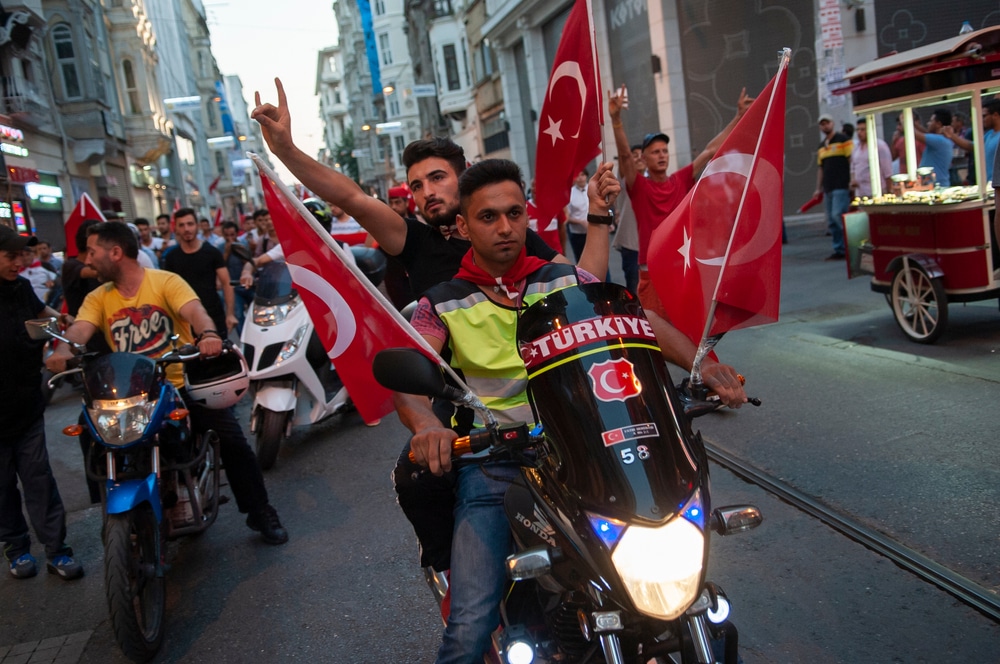Over the weekend, Kurdish families in the Belgian towns of Houthalen-Helchteren and Heusden-Zolder became victims of violent attacks by large groups of ultranationalist Turks. The attacks occurred as families were returning from Nevruz celebrations, an event marking the first day of spring and a significant cultural festivity for Kurds. Reports from Medya News and ANF English highlighted the severity of the violence, which resulted in serious injuries to several individuals.
The violence began following a protest by hundreds of Turks in Leuven’s Kessel-Lo district, organized in response to the Nevruz celebration that attracted thousands. The situation escalated into violent encounters, with attackers vandalizing vehicles and attempting to force entry into a house in Heusden-Zolder, where around 40 people sought refuge.
Another mob attack by the Turkish fascists in Heusden-Zolder (Belgium)
11 Turkish fascists roam the streets on a manhunt for Kurds, they found 1 elderly Kurdish men and 9 Turkish men brutally attack him.
The men in red, likely also Kurdish intervened and was attacked too https://t.co/K1GIzmgyeG pic.twitter.com/x94vzuM5tg
— ScharoMaroof (@ScharoMaroof) March 24, 2024
Witnesses reported that the attackers brandished the Turkish flag and made the “wolf” hand salute, a gesture linked to the Grey Wolves, considered the paramilitary wing of Turkey’s Nationalist Movement Party (MHP). The police had to intervene, offering 24-hour protection to the targeted Kurdish homes. At least six individuals were hospitalized, with two in critical condition.
The violence was characterized by assaults on Kurds by multiple attackers, including a particularly brutal attack on an elderly Kurdish man in Heusden-Zolder. Scharo Maroof, founder of the Kurdistan Monitor, shared footage of the violence, including an incident where a group of Turks, armed with machetes, attacked young Kurds.
The attacks have drawn widespread condemnation and raised concerns about organized violence, especially after Heusden-Zolder’s deputy mayor, who has previously publicly voiced support for Turkey’s Nationalist Movement Party, provided a conflicting account of the events, and supported the attacks on television. In response to the attacks, Kurdish groups in Geneva and Bern, and several European countries, staged protests.
The Kurdish community, constituting about 18 percent of Turkey’s population, has faced discrimination and violence within Turkey, with recent years seeing an uptick in hate crimes linked to accusations of affiliations with the Kurdistan Workers’ Party (PKK). The PKK has been engaged in a conflict in Turkey’s southeast since 1984 and is designated as a terrorist organization by Turkey.
Expanded Coverage:






